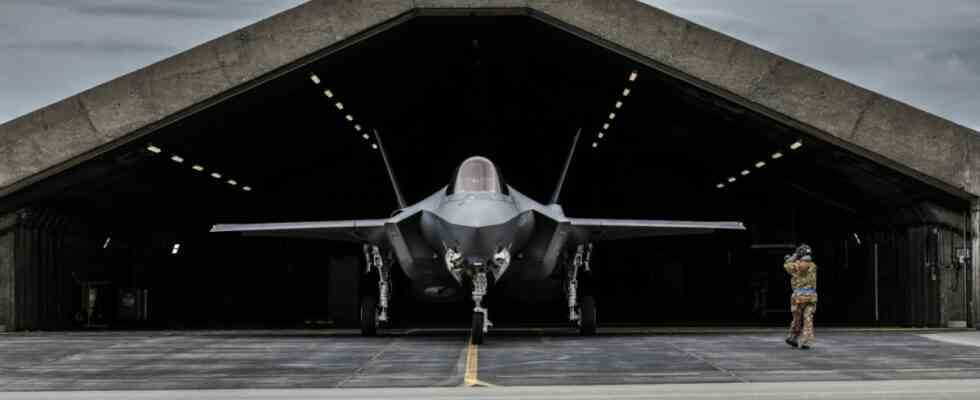Despite the turning point proclaimed by Chancellor Olaf Scholz, it will still be some time before Germany increases defense spending to two percent of gross domestic product. In principle, all NATO countries have committed themselves to this. In the current year, said government spokesman Steffen Hebestreit on Monday in Berlin, the figure will be around 1.7 percent. It remains to be seen whether the goal will be achieved in the coming year. Hebestreit confirmed that the federal government intends to “permanently achieve the two percent target”. But when asked exactly when this would be the case, Hebestreit said: “In this legislative period.” In the extreme case, that is, not until 2025.
In his government statement on February 27, Chancellor Scholz sounded even more determined. Under the impression of the Russian troops’ invasion of Ukraine, which began on February 24, Scholz said: “From now on we will invest more than two percent of gross domestic product in our defense every year.” Hebestreit said on Monday that the government was “doing its best”. The delay has to do, among other things, with the fact that new armaments such as the fighter aircraft of the type F-35 could not be ordered and delivered so quickly that large sums could be turned over immediately.
Inflation can also be a reason why Germany is missing the target
However, Germany could also miss the two percent target of the NATO countries in the medium to long term. The Institute of the German Economy (IW) points this out in a report. The reason for this is the strong inflation. The high current price increases have made the previous calculations “partially obsolete,” the paper says. With the previous budget estimates, the NATO quota “cannot be met”.
According to medium-term financial planning, the budget for the Federal Ministry of Defense was frozen at 50 billion euros a year; In addition, spread over several years, 100 billion will come from the “Zeitwende” special fund that Chancellor Scholz announced at the end of February after the start of the war in Ukraine. The IW now points out that these are fixed amounts, while the gross domestic product (GDP) is growing nominally due to inflation. As a result, the defense budget is shrinking in relation to GDP.
The NATO target will probably be reached in 2024 and 2025, but there will already be a gap of 9.7 billion euros in 2026, and in 2027 the deficit will increase to 39 billion euros if the special fund is no longer available (because it has been used up). In general, the price of armaments increases by about five percent per year with inflation, and the costs for personnel and fuel also rise, in some cases massively. The cost development for new equipment means that “the existing needs can be covered less comprehensively with the existing funds”.
Merz accuses the government of breaking its promises
Government spokesman Hebestreit countered on Monday that the IW was referring to medium-term financial planning. However, this is conservative, and as a rule, the actual defense budget is ultimately larger than planned.
Opposition leader Friederich Merz (CDU) recently accused the Scholz government of breaking its promises in connection with the announced special fund for the Bundeswehr. The defense budget will not increase as agreed, but will decrease by almost 300 million euros, said the CDU chairman in the Bundestag at the end of November. “This is a gross breach of promise to Parliament and above all to the Bundeswehr,” he criticized. Dealing with the commitments and dealing with the partners in the EU and NATO rightly triggers alienation and distrust, said Merz.

